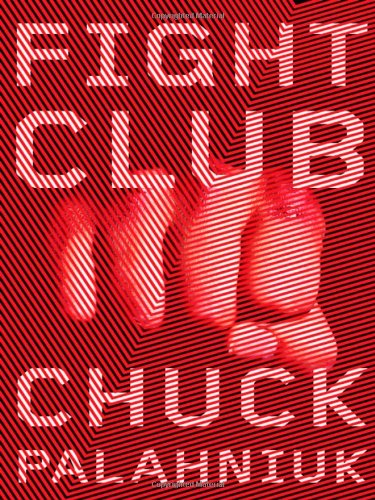
- ISBN13: 9780393327342
- Condition: New
- Notes: BRAND NEW FROM PUBLISHER! 100% Satisfaction Guarantee. Tracking provided on most orders. Buy with Confidence! Millions of books sold!
Fight Club, directed by David Fincher (Seven), is not for the faint of heart; the violence is no holds barred. But the film is captivating and beautifully shot, with some thought-provoking ideas. Pitt and Norton are an unbeatable duo, and the film has some surprisingly humorous moments. The film leaves you with a sense of profound discomfort and a desire to see it again, if for no other reason than to just to take it all in. --Jenny Brown
The first rule about fight club is you don't talk about fight club.
Chuck Palahniuk's outrageous and startling debut novel that exploded American literature and spawned a movement. Every weekend, in the basements and parking lots of bars across the country, young men with white-collar jobs and failed ! lives take off their shoes and shirts and fight each other barehanded just as long as they have to. Then they go back to those jobs with blackened eyes and loosened teeth and the sense that they can handle anything. Fight club is the invention of Tyler Durden, projectionist, waiter, and dark, anarchic genius, and it's only the beginning of his plans for violent revenge on an empty consumer-culture world.The only person who gets called Ballardesque more often than Chuck Palahniuk is, well... J.G. Ballard. So, does Portland, Oregon's "torchbearer for the nihilistic generation" deserve that kind of treatment? Yes and no. There is a resemblance between Fight Club and works such as Crash and Cocaine Nights in that both see the innocuous mundanities of everyday life as nothing more than the severely loosened cap on a seething underworld cauldron of unchecked impulse and social atrocity. Welcome to the present-day U.S. of A. As Ballard's characters ge! t their jollies from staging automobile accidents, Palahniuk's! yuppies unwind from a day at the office by organizing bloodsport rings and selling soap to fund anarchist overthrows. Let's just say that neither of these guys are going to be called in to do a Full House script rewrite any time soon. But while the ingredients are the same, Ballard and Palahniuk bake at completely different temperatures. Unlike his British counterpart, who tends to cast his American protagonists in a chilly light, holding them close enough to dissect but far enough away to eliminate any possibility of kinship, Palahniuk isn't happy unless he's first-person front and center, completely entangled in the whole sordid mess. An intensely psychological novel that never runs the risk of becoming clinical, Fight Club is about both the dangers of loyalty and the dreaded weight of leadership, the desire to band together and the compulsion to head for the hills. In short, it's about the pride and horror of being an American, rendered in lethally swift prose.! Fight Club's protagonist might occasionally become foggy about who he truly is (you'll see what I mean), but one thing is for certain: you're not likely to forget the book's author. Never mind Ballardesque. Palahniukian here we come! --Bob Michaels

 8:54 AM
8:54 AM
 Blog Fasion
Blog Fasion


0 comments:
Post a Comment